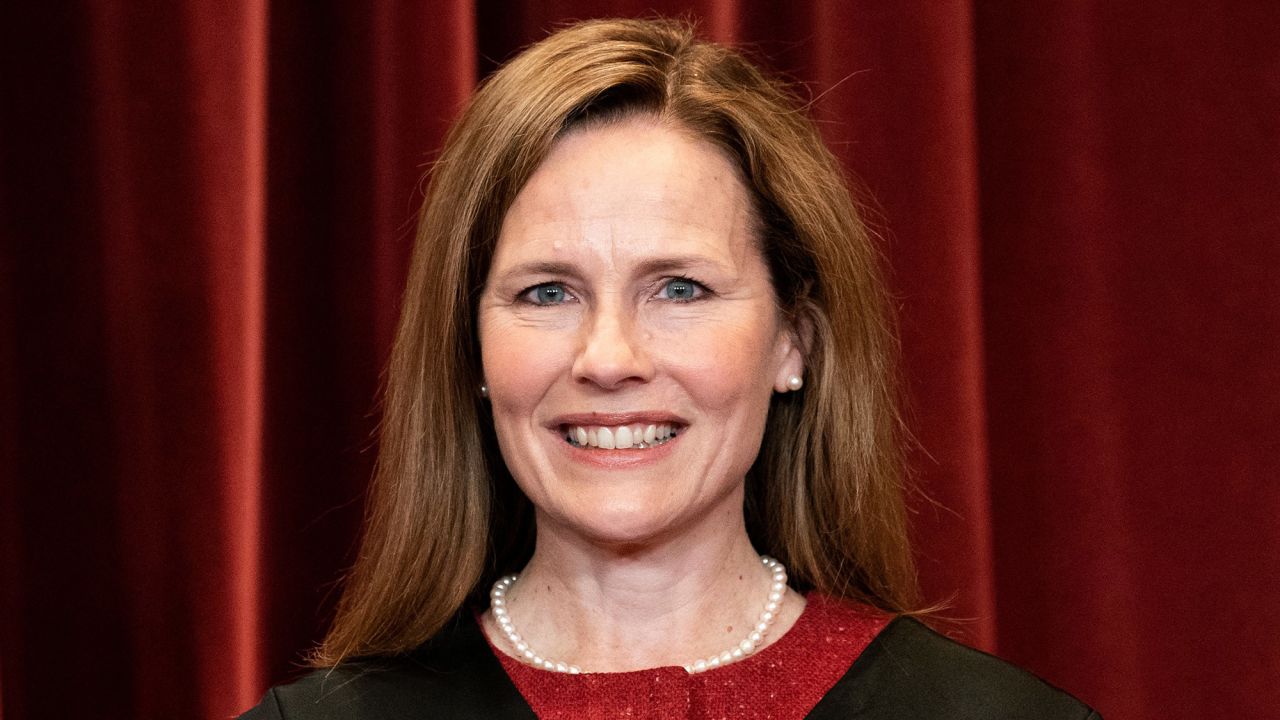From the moment he was confirmed in 2005, Chief Justice John Roberts made it his mission to differentiate the Supreme Court from the political branches. Yet, the court is ensnared in politics perhaps more than ever – and by the chief’s own hand.
The former star appellate lawyer who allies once cast as the smartest person in the room remains confounded by the realities of Donald Trump.
Roberts was shaken by the adverse public reaction to his decision affording Trump substantial immunity from criminal prosecution. His protestations that the case concerned the presidency, not Trump, held little currency.
Unlike most of the justices, he made no public speeches over the summer. Colleagues and friends who saw him said he looked especially weary, as if carrying greater weight on his shoulders. On Monday, after he ascended the bench to formally open a new session, Roberts hewed to a familiar script and kept any emotion in check.
This is a fraught time for America’s highest court, as divisive rulings mount and controversy persists over the justices’ lack of an enforceable ethics code.
Roberts, who will turn 70 in January, faces a new slate of major cases to be heard in the coming months, including disputes over transgender rights, gun control, the death penalty and a possible return of Trump litigation. But perhaps the more significant immediate test of Roberts’ leadership will be litigation around the November 5 presidential election and the counting of votes.
The Roberts Court has been in sync with the GOP political agenda largely because of decisions the chief justice has authored: For Trump and other Republicans. Against voting rights and racial affirmative action. Against federal regulations over environmental, public health and consumer affairs.
Roberts’ pattern of favoring GOP interests has been entrenched by his decisions in such cases as the 2013 Shelby County v. Holder (gutting part of the Voting Rights Act) and the 2019 Rucho v. Common Cause (preventing US courts from stopping political parties from gerrymandering voting districts to their advantage).
But the politically charged valence deepened in the justices’ resolution of the case against former President Trump on election-interference charges from 2020. The court’s protracted action, even before its July 1 decision, ensured that Trump’s trial would not occur before his renewed bid for the White House, now against Democratic Vice President Kamala Harris.

The Supreme Court’s stature has shrunk, according to multiple polls. In July, for example, after the Trump immunity decision was released and the annual session ended, fewer than half of Americans (47%) expressed a favorable opinion of the court, according to a Pew Research Center survey.
That favorable rating was 23 percentage points lower than in August 2020, when the conservative supermajority on the nine-member bench took hold. Part of the drop no doubt tracks the court’s 2022 decision overturning abortion rights, a decision to which Roberts partially dissented.
Responses predictably differed based on people’s politics. Republicans held a far more favorable view of the Supreme Court than Democrats did, Pew reported.
Now, as a new term begins and a new round of election litigation looms, the question is whether Roberts will reinforce his conservatism or whether he will recalibrate as he has at other times. In 2020, for instance, he hedged on his opposition to abortion rights and retreated from prior sentiment against Obama-era protections for certain familial immigrants without documentation.
He is plainly mindful of his legacy.
“You wonder if you’re going to be John Marshall or you’re going to be Roger Taney,” Roberts told a law school audience in 2010, referring to the great 19th century chief justice and the latter chief who wrote the 1857 Dred Scott decision declaring that slaves were not citizens. “The answer is, of course, you are certainly not going to be John Marshall. But you want to avoid the danger of being Roger Taney.”
Roberts declined a CNN request for an interview.
Is another Bush v. Gore moment approaching?
Trump, whose pending criminal prosecution arises from his 2020 effort to overturn the valid results giving Joe Biden the White House, has already engaged in a series of lies about state ballot rules and other election procedures this cycle. In one of his especially audacious falsehoods, he has proclaimed that Harris will beat him only if she cheats.
Dozens of Republican-generated lawsuits against state election practices are making their way through lower courts. Any litigation that is truly consequential in the Trump-Harris battle is likely to force the justices into rapid decision-making against tight deadlines.
The possibility of another Bush v. Gore hangs over the court. In that 2000 case testing which candidate could claim Florida’s crucial electoral votes, the court ruled for then-Texas Gov. George W. Bush over then-Vice President Al Gore. The 5-4 decision fell along the justices’ ideological, if not political, lines.
Roberts, who had served in the Reagan and George H.W. Bush administrations and was in private practice at the time, assisted George W. Bush’s legal team. After Bush took the White House, he appointed Roberts to a US appellate court. In 2005, he elevated Roberts to the Supreme Court to succeed William Rehnquist, for whom Roberts had once worked.
In one early interview, Roberts told C-SPAN: “The most important thing for the public to understand is that we are not a political branch of government. They don’t elect us. If they don’t like what we’re doing, it’s more or less just too bad.”
In 2018, when Roberts tried to counter disparaging statements by Trump against federal judges, the chief justice proclaimed that “we do not have Obama judges or Trump judges,” rather “dedicated judges doing their level best to do equal right to those appearing before them.”
“Sorry Chief Justice John Roberts,” Trump shot back that same day, “but you do indeed have ‘Obama judges,’ and they have a much different point of view than the people who are charged with the safety of our country.”
That November 2018 clash, sparked by controversy over federal asylum policy, showed Trump’s readiness to one-up any perceived adversary. Roberts said nothing more against Trump at the time, and he has since avoided any similar public reproach.
Roberts’ defenders say Trump immunity ruling is misunderstood
In an era of increased polarization and rising public distrust of government, Roberts does not inhabit the world he apparently envisioned when he first took his seat.
As he was seizing the majority at the court for the most important decisions last session, his power to persuade the public was dissolving, evidenced by reaction to the Trump immunity case.
Special counsel Jack Smith has accused Trump of engaging in multiple crimes to stay in office, including lying to state officials to ignore true vote counts, trying to organize fake slates of state electors and directing a mob to march toward the US Capitol on January 6, 2021, where election results were to be certified.
Roberts, joined by his five fellow conservatives, found that the former president was entitled to presumptive, if not absolute, immunity for actions related to his official acts. Roberts’ view of official acts, as opposed to private ones, was vast.
But the chief justice said such sweep was important to protect the office of the presidency: “(U)nlike the political branches and the public at large, we cannot afford to fixate exclusively, or even primarily, on present exigencies. … Our perspective must be more farsighted.”
Dissenting justices said the majority’s reasoning flew in the face of established precedent that would hold a president accountable.
“Relying on little more than its own misguided wisdom about the need for ‘bold and unhesitating action’ by the President, the Court gives former President Trump all the immunity he asked for and more,” Justice Sonia Sotomayor wrote for the liberal dissenters.
Law professors excoriated the majority’s reasoning, and Princeton history professor Sean Wilentz, writing in the New York Review of Books, went so far as to compare the decision to the Dred Scott case. He declared Trump v. United States “the most sweeping judicial reconstruction of the American presidency in history.”
Roberts’ former law clerks have defended him to varying degrees. “I think a lot of reaction to the decision is somewhat overblown,” said lawyer Erin Murphy, now in private practice.
At a recent Georgetown University Law Center session, she said, “the Trump immunity case is less about Trump and more about not opening the door to” successive administrations “coming after previous presidents.”
Roman Martinez, also a former Roberts clerk in private appellate practice, said the decision was more open-ended than has been widely construed.

“There’s ambiguity as to the scope of the immunity,” he said. “There’s sorta question marks across different aspects of the opinion on what it means. … We haven’t seen the ending yet.”
Smith has recast the indictment, highlighting the nonofficial nature of Trump’s campaign efforts from the last election, as he now argues before US District Judge Tanya Chutkan that the case can proceed. Chutkan will decide which parts of the Smith indictment can go to trial, without breaching the court’s decision that declared the former president immune from prosecution for official, as opposed to private, conduct.
Last week, Chutkan released Smith’s 165-page motion for immunity determinations on Trump’s actions attempting to reverse the 2020 election results. Smith has argued that Trump’s challenge of the results stemmed from his private actions as a candidate desperate to keep the White House.
Harvard Law School professor Richard Lazarus, a longtime friend of Roberts, spent time with him in July immediately after the Trump decision was issued. They taught together in Galway, Ireland, as part of a New England Law Boston program.
In an August essay for The Washington Post, Lazarus said the Roberts opinion “offers a surprisingly clear road map for the successful prosecution of Trump.”
“The bottom line is clear,” Lazarus wrote. “Whether you are outraged by or sympathetic to the surprising sweep of the Supreme Court’s presidential immunity ruling, it nevertheless leaves the former president very much open to a successful felony prosecution.”
Whether that happens is beyond the hands of Roberts and the Supreme Court at the moment as Chutkan considers new filings. And it may be that Trump’s case is more truly in the hands of the voters.





